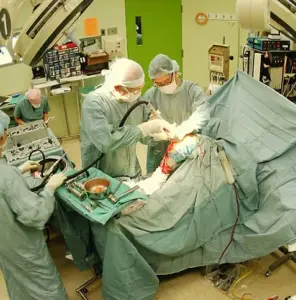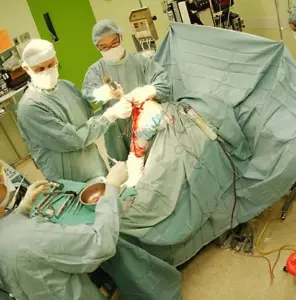What happens when a doctor performs the wrong surgery? Or removes the wrong organ? Or operates on the wrong patient?
 While this may seem like the stuff of science fiction or movies, sadly that is not the case. Serious and often life-threatening surgical errors often occur in operating rooms across the country. In fact, statistics show that approximately 4,044 surgical “never events” happen each and every year in the United States. “Never events” are events that should NEVER happen in surgery – such as leaving a foreign object inside the body or operating on the wrong part of the body. So what happens when a surgeon operates on the wrong side?
While this may seem like the stuff of science fiction or movies, sadly that is not the case. Serious and often life-threatening surgical errors often occur in operating rooms across the country. In fact, statistics show that approximately 4,044 surgical “never events” happen each and every year in the United States. “Never events” are events that should NEVER happen in surgery – such as leaving a foreign object inside the body or operating on the wrong part of the body. So what happens when a surgeon operates on the wrong side?
Doctors, surgeons, nurses, and medical professionals owe a duty of care to their patients to perform the correct surgeries to the best of their abilities. Surgeons who fail to follow the proper safety protocols, or who fail to perform the required surgical safety checklists, can be found liable for medical malpractice.
Take, for example, a recent case where a patient went into surgery to have his left kidney removed and sent to pathology. When the surgeon operated, however, he removed the right kidney by mistake. The mistake was not caught until the pathology report was returned, showing the surgical results. The patient was left with a cancerous left kidney intact and without his perfectly healthy right one. The hospital was fined $100,000.
 Researchers have found that, when operating room checklists are used, they are not always used correctly. In fact, 50% of the time they do not contain the correct patient information. 20% of the time the operating room checklist had incomplete information. Sadly, this information is not corrected or changed prior to surgery, sometimes leading to devastating mistakes. The World Health Organization states that the goal of the surgery checklist is to reduce the number of patient deaths and complications. Yet, if they are not being used correctly, these mistakes will still occur.
Researchers have found that, when operating room checklists are used, they are not always used correctly. In fact, 50% of the time they do not contain the correct patient information. 20% of the time the operating room checklist had incomplete information. Sadly, this information is not corrected or changed prior to surgery, sometimes leading to devastating mistakes. The World Health Organization states that the goal of the surgery checklist is to reduce the number of patient deaths and complications. Yet, if they are not being used correctly, these mistakes will still occur.
What is in a Surgical Checklist?
A surgical checklist often contains questions to ask the patient before anesthesia, questions to ask the doctor before the skin incision is made, and then questions to ask before the patient exits the operating room. Questions such as, “Is the site marked?” could help numerous patients avoid devastating surgical errors. All medical professionals should insist that all their medical colleagues and fellow surgeons use operating room checklists at all times. In addition, all medical professionals should acknowledge that surgical mistakes do occur and that checklists could potentially prevent these mistakes from occurring.
Contact Our Experienced Medical Malpractice Lawyers
If you or someone you love has been injured after undergoing a surgical procedure, the medical malpractice attorneys at McLaughlin & Lauricella, P.C., can help. Our team of lawyers consists of some of the best medical malpractice attorneys in Pennsylvania and New Jersey, and we will fight aggressively for you throughout the legal process.
The medical malpractice attorneys at McLaughlin & Lauricella, P.C., have more than 90 years of experience representing patients and their families across Philadelphia, Berks, Bucks, Dauphin, Delaware, Lackawanna, Lehigh, Luzerne, Montgomery, and Northampton Counties. We are also proud to serve injured patients throughout the State of New Jersey. Contact us today at 215-568-1510 (PA) or 856-380-3999 (NJ), or fill out our confidential contact form to learn more about your legal options.



